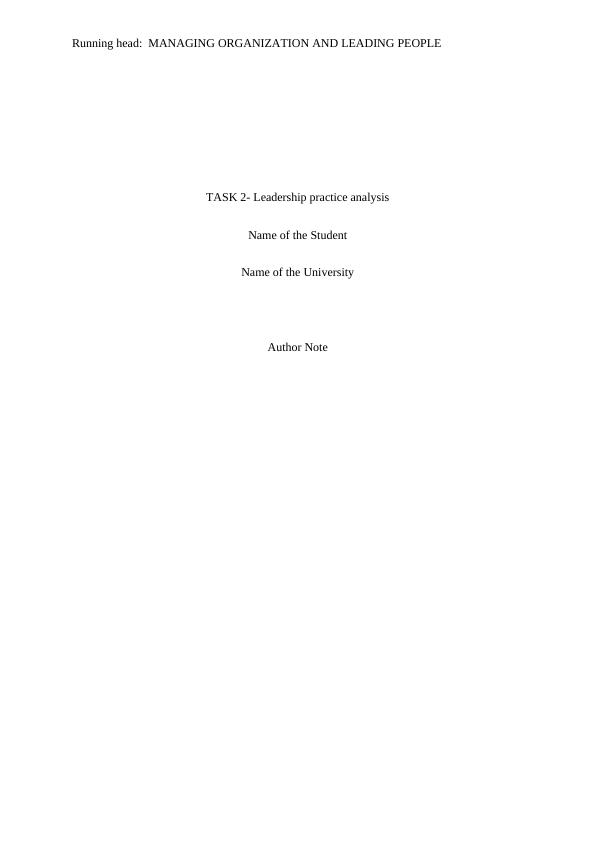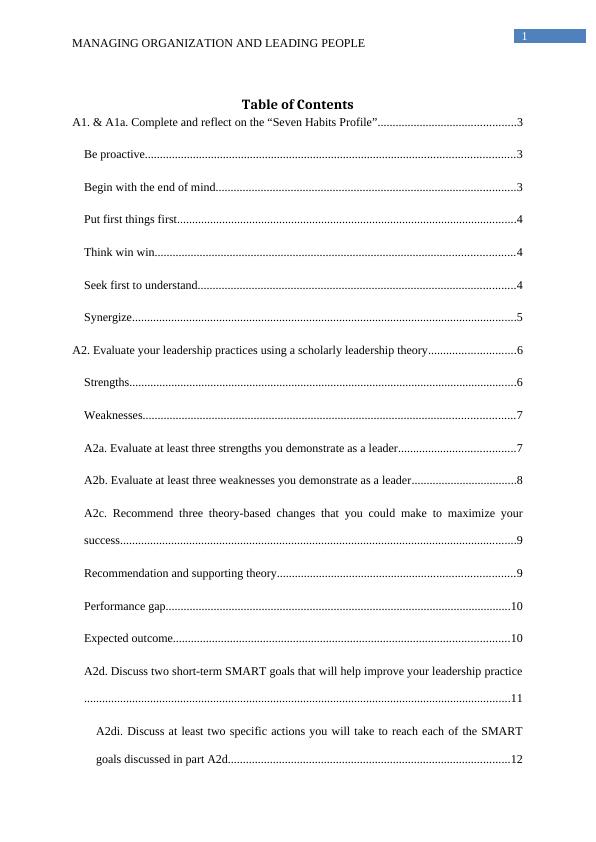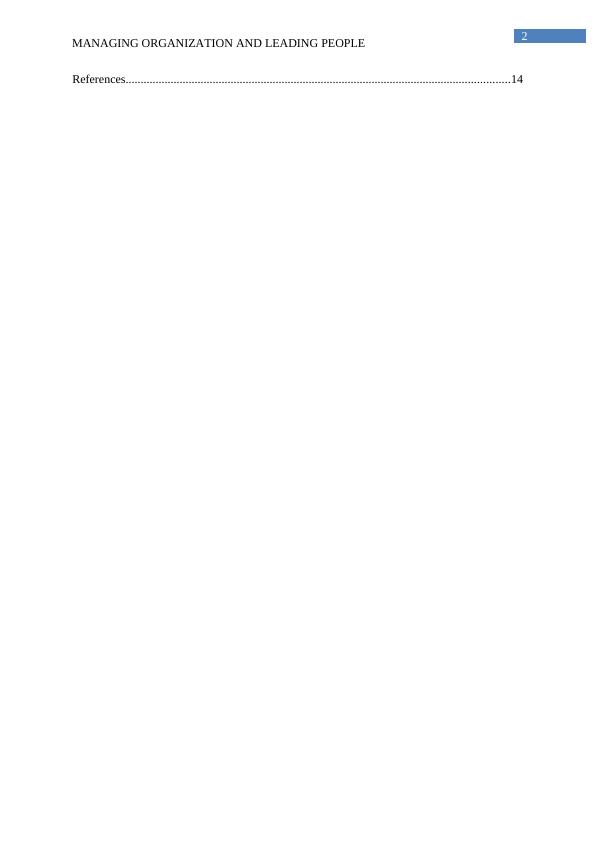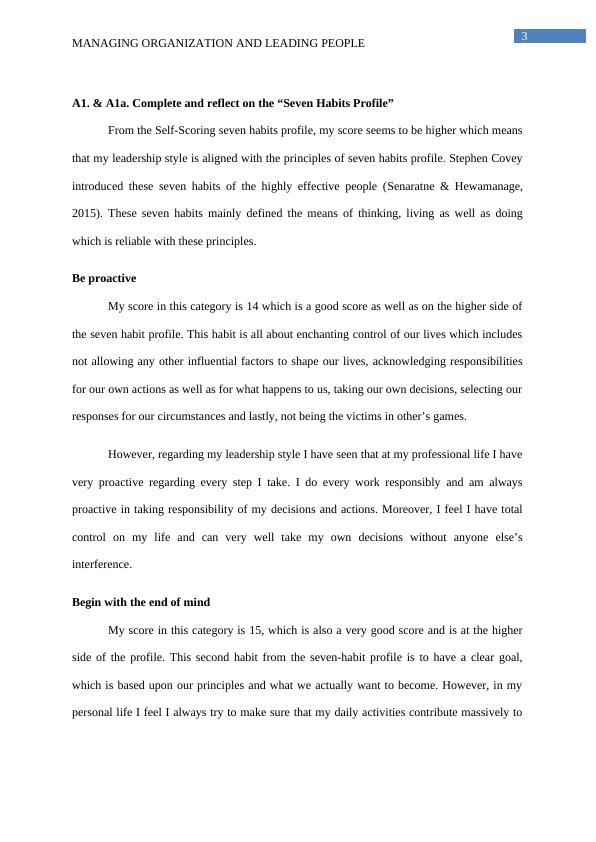Leadership Practice Analysis: Participative Theory of Leadership
15 Pages3828 Words479 Views
Added on 2023-06-15
About This Document
This article evaluates the leadership practice analysis using the Participative Theory of Leadership. It discusses the strengths and weaknesses of the leader and recommends theory-based changes to maximize success. The article also reflects on the Seven Habits Profile and evaluates the leadership practices using a scholarly leadership theory.
Leadership Practice Analysis: Participative Theory of Leadership
Added on 2023-06-15
ShareRelated Documents
End of preview
Want to access all the pages? Upload your documents or become a member.
C200 - Managing Organizations and Leading People
|12
|3177
|676
Steven Covey’s the 7 Habits of Highly Effective People
|5
|984
|75
Leadership and Responsibility - PDF
|7
|2236
|43
The Relationship Between Leadership and People
|8
|1826
|49
Reflection on Group Work and Self-Awareness in Leadership
|3
|595
|64
Ethical Challenges in Leadership And Management
|7
|1391
|19




